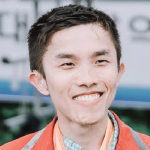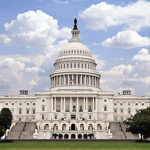
alexskopje / shutterstock.com
I am an alien rheumatologist. Are you? One in five rheumatology fellows is considered an alien. Under the Code of Federal Regulations Title 22 Chapter I Subchapter G Part 62 Subpart B Section 62.27, an alien physician is a foreign national who is a graduate of a school of medicine who comes to the U.S. under a program in which they will receive graduate medical education or training conducted by accredited U.S. schools of medicine or scientific institutions. Alien physicians, such as myself, are sponsored by the Educational Commission for Foreign Medical Graduates (ECFMG) via the J-1 exchange visitor visa program.
A multitude of reasons explain why a foreign medical graduate may wish to pursue graduate medical training in the U.S., including the quality of education, quality of life, family, relationships, adventure and money. My personal reason was falling in love. Yes, dear reader, I had fallen in love with a man while visiting Boston as a visiting medical student at Dana-Farber Cancer Institute. After two years of a long-distance relationship between the U.K. and Boston, I quit my job as a junior doctor in Oxford to make the leap across the pond to become an alien physician. Alas, two years after I moved to Boston, our relationship ended. Nevertheless, there are worse places than Boston to be an eligible bachelor with a British accent. I have no regrets about moving to the U.S.
However, as I near the end of my graduate medical training my status as an alien rheumatologist is catching up with me. Under Section 212(e) of the Immigration and Nationality Act, any exchange visitor physician coming to the U.S. on or after Jan. 10, 1977, for the purpose of receiving graduate medical education or training, is automatically subject to the two-year, home-country physical presence requirement. The implication is that as a British citizen, I have to return to the U.K. after my rheumatology fellowship because my visa will expire. So strict is this requirement that on my DS-2019 form, it is written in bold capital letters that even marriage to a U.S. citizen or birth of a child in the U.S. does not remove this requirement. Is this the end of my American dream?
Options
Ways do exist to obtain a waiver of the exchange visitor, two-year, home-country physical presence requirement. One route is to obtain a waiver via the Conrad State 30 Program under Section 220(c) of the Immigration and Nationality Technical Corrections Act of 1994 (INTCA) Public Law 103-416. The Conrad State 30 Program allows federal programs to waive the two-year, home-country physical presence requirement for foreign physicians who received J-1 status to pursue graduate medical training in return for at least three years of medical service to patients in or from underserved areas. Unsurprisingly, these underserved areas are not the most desirable places for physicians to live and work. Rheumatology J-1 visa waiver opportunities are usually found in rural areas, but occasionally can be found in underserved urban areas.
Halfway through my first-year rheumatology fellowship, I interviewed at a community hospital in southwest Chicago that was willing to sponsor my J-1 visa waiver. By April 2017, my contract with the hospital was signed and the hospital legal team submitted my application for visa waiver in October. In December 2017, I received a phone call from the lawyer informing me that because the number of visa waivers available in each state is limited to 30, my visa waiver application was unsuccessful. Too many aliens had applied for a visa waiver in Illinois in 2017, and I don’t speak Spanish. Yes, dear reader, my American dream is over, for now at least.
I find myself in a quandary: I will be qualified as a rheumatology attending in the U.S., but I will have no right to work in the U.S., & I have the right to work in the U.K., but I will not be qualified as a rheumatology attending/consultant. What’s an alien to do?
Now What?
To lose a job opportunity is stressful enough, but to add insult to injury, as an alien I face expulsion from the U.S. once I graduate from my fellowship. You would think the logical move after my rheumatology fellowship would be to find a job in the U.K. as a rheumatology attending (also called consultant). However, medicine is a highly regulated profession and accreditation in one country does not automatically qualify you to practice in a different country.
The General Medical Council (GMC) in the U.K. offers specific guidance on how to apply for a Certificate of Eligibility for Specialist Registration in Rheumatology. One has to demonstrate proof of equivalent knowledge, skills, clinical experience and competence as a rheumatologist in the U.K. The most challenging criteria to be accredited as a rheumatology attending/consultant by the GMC is that I would have to complete at least two years of internal medicine training followed by at least four years of rheumatology training. Because my rheumatology fellowship is only for two years, and funding for a third-year fellowship is not available to aliens, such as myself, this limits my ability to work in the U.K. as a rheumatology attending/consult immediately upon graduation.
I find myself in a quandary: I will be qualified as a rheumatology attending in the U.S., but I will have no right to work in the U.S. On the other hand, I have the right to work in the U.K., but I will not be qualified as a rheumatology attending/consultant. What’s an alien to do?
After a frantic search for employment in a different country, I was fortunate to be accepted for the position of clinical research fellow at the Nuffield Department of Orthopaedics, Rheumatology and Musculoskeletal Sciences at Oxford University. Although I won’t be an independent rheumatology practitioner yet, at least this opportunity will allow me to have one rheumatology clinic a week, with the remaining time for undertaking ultrasound-guided synovial biopsy as part of delivering clinical trials relating to rheumatoid arthritis.
The Wider Challenge
I have spoken to many rheumatology fellows also on J-1 visas as alien physicians. We bemoan the limited opportunities in less-than-ideal geographic regions available to us after fellowship, but we recognize that we knowingly signed up to be alien physicians. The process of obtaining a visa waiver is an uncertain and anxious one. Some of us have secured plans to return to our home countries and face having to explain to medical licensing authorities what training in the U.S. as a rheumatologist involves.
Like my fellow extraterrestrials, it is time to go home.
 Shing Law, BM, BCh, is a second-year rheumatology fellow at Boston University Medical Center. Outside of work, he is head coxswain at Massachusetts Institute of Technology Rowing Club and is social event organizer for OxCam10, an alumni group for recent graduates of Oxford University and Cambridge University in Boston.
Shing Law, BM, BCh, is a second-year rheumatology fellow at Boston University Medical Center. Outside of work, he is head coxswain at Massachusetts Institute of Technology Rowing Club and is social event organizer for OxCam10, an alumni group for recent graduates of Oxford University and Cambridge University in Boston.
